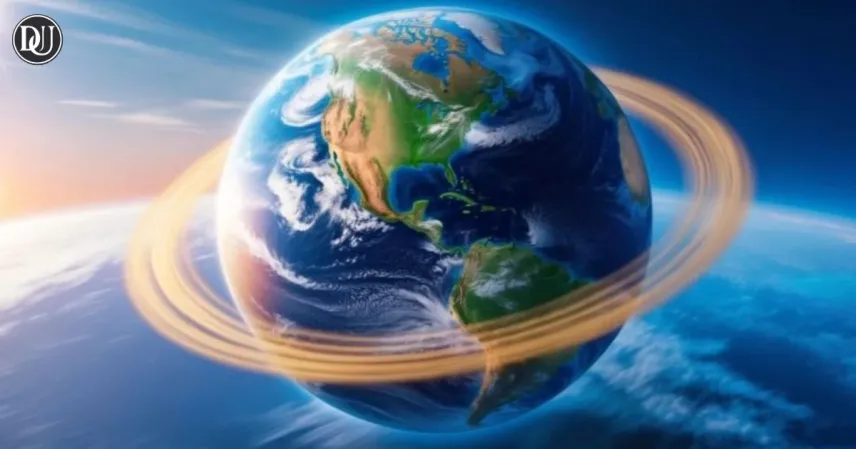The Earth made headlines once again by spinning faster than ever before in modern recorded history. On July 9, scientists observed a surprising anomaly — the shortest day ever recorded. This unexpected change in the Earth’s rotation has ignited widespread curiosity and scientific debate across the globe. The phenomenon, now referred to as earth rotation July 9, could have far-reaching implications.
What Exactly Happened on July 9?
On July 9, 2025, Earth completed its rotation in less than the usual 24 hours — a microsecond shorter to be precise. While this may seem negligible in daily life, for scientists and timekeepers, such a change is a big deal. Earth typically completes one rotation every 86,400 seconds, but advanced atomic clocks and astronomical sensors detected a deviation on this day.
The earth rotation July 9 event has sparked concerns as it’s not an isolated incident. It appears to be part of a trend that began in recent years, showing our planet is slowly but increasingly rotating faster.
Why Is the Earth Spinning Faster?
There isn’t a single agreed-upon reason why Earth’s spin is accelerating, but experts have proposed several theories:
-
Glacial Rebound: The melting of glaciers is causing mass to redistribute across the planet, changing its spin slightly.
-
Core-Mantle Interaction: Movements within Earth’s molten core can affect its rotational speed.
-
Seismic Activity: Large earthquakes have the potential to alter the distribution of mass, affecting Earth’s spin.
-
Atmospheric and Ocean Circulation: Shifts in wind patterns and ocean currents can apply torque to Earth, altering its speed.
One hypothesis gaining attention is the interaction between the Moon and the Earth’s equator, which may be subtly influencing Earth’s axial momentum. These gravitational pulls can increase or decrease Earth’s rotational velocity, depending on the alignment.
Historical Context: Is This Unprecedented?
While earth rotation July 9 broke records, it's not the first time scientists have seen anomalies in Earth's rotation. In 2020 and 2021, similar spikes in rotational speed were recorded, with some days measuring fractions of milliseconds shorter than average. However, July 9 marks the fastest full-day rotation since atomic clock tracking began in 1960.
Could This Impact Daily Life?
Currently, the impact on everyday human life is practically zero. The difference in time is in microseconds, far too small to affect calendars or daily schedules. However, precision systems like GPS, atomic timekeeping, and space missions rely on exact timekeeping, making even small changes significant.
Moreover, if the Earth continues to spin faster, it might lead to the need for a negative leap second — subtracting a second from atomic time to realign with solar time. This would be the first time in history a leap second is subtracted, not added.
The Debate Around Leap Seconds
Leap seconds are usually added to compensate for Earth's slow and irregular deceleration. But with events like earth rotation July 9, where the planet is accelerating, subtracting a second may soon be necessary.
Some tech companies and scientists argue against leap seconds altogether, citing issues they cause in systems like stock exchanges, communication satellites, and server management. Yet others believe they are necessary to keep atomic and solar time aligned.
Long-Term Effects: Should We Be Worried?
While the shift isn’t alarming in itself, it could be a symptom of broader planetary changes. Accelerated rotation could indicate:
-
Redistribution of mass due to climate change
-
Shifts in the planet’s interior
-
Possible indicators of future geological activity
Further, some scientists have linked these rotational anomalies to climatic patterns like El Niño or shifts in the jet stream, although evidence is still being reviewed.
What’s Next for Earth’s Timekeepers?
Timekeeping agencies like the International Earth Rotation and Reference Systems Service (IERS) and scientists at national observatories are closely watching the trend. Instruments like atomic clocks and laser-ranging satellites are constantly measuring Earth's spin to the millionth of a second.










